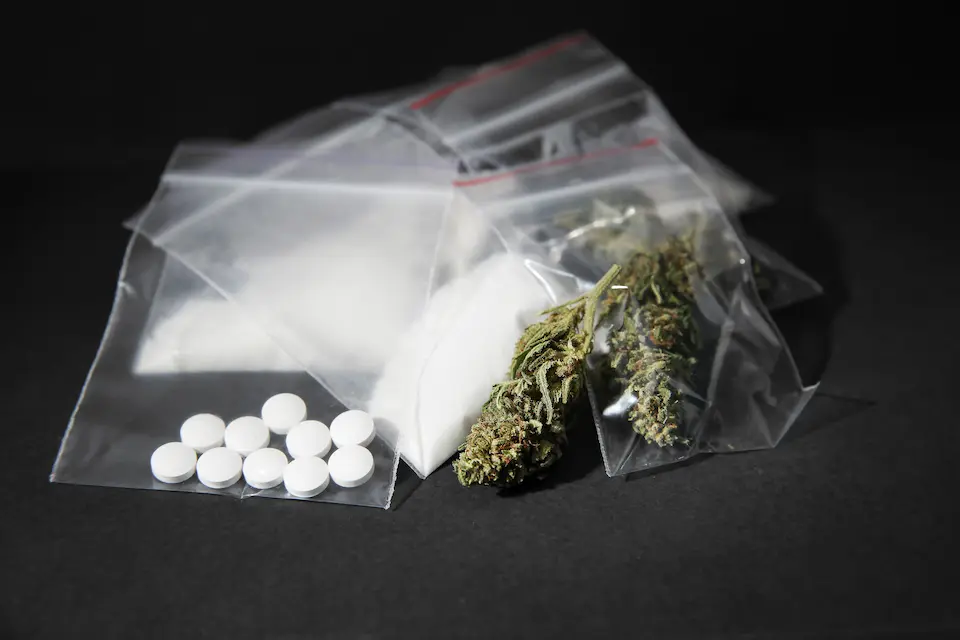Car accidents are stressful and can result in significant legal and financial consequences. If you're…
At the Law Offices of J.M. Kotzker, we recognize the gravity of felony charges for drugs and are committed to providing the guidance and defense needed to navigate the criminal justice system in North Carolina. Our felony drug crime lawyers are exploring the world of felony charges for drug offenses in North Carolina, shedding light on the legal implications, potential consequences, and essential defense strategies.
Whether you're facing allegations of drug trafficking, possession with intent to distribute, or manufacturing controlled substances, our goal is to empower you with knowledge to make informed decisions and protect your rights.
Classification of Drugs and Controlled Substances in NC
North Carolina classifies drugs and controlled substances into different schedules based on their potential for abuse, medical use, and other factors. This classification system helps establish the severity of penalties associated with various drug crime offenses. Felony charges for drug offenses can apply to drugs classified in any of these schedules, depending on the specific circumstances of the offense, the quantity of drugs involved, and other factors.
Schedule I
These drugs have a high potential for abuse, no accepted medical use, and a lack of safety even under medical supervision. Examples include heroin, ecstasy (MDMA), and LSD.
Schedule II
These substances have a high potential for abuse but may have limited accepted medical uses. They can lead to severe physical and psychological dependence. Examples include cocaine, methamphetamine, and prescription opioids like oxycodone.
Schedule III
Drugs in this category have a moderate potential for abuse and accepted medical uses. Abuse may lead to low to moderate physical dependence or high psychological dependence. Examples include certain prescription drugs like Vicodin and anabolic steroids.
Schedule IV
Schedule IV drugs have a lower potential for abuse compared to those in the previous schedules. They have accepted medical uses and may lead to limited physical or psychological dependence. Examples include Xanax, Ativan, and other common prescription medications.
Schedule V
Drugs in this schedule have the lowest potential for abuse among controlled substances. They have accepted medical uses and limited potential for dependence. Examples include cough preparations containing less than 200 milligrams of codeine per 100 milliliters or per 100 grams.
Felony Drug Charges in North Carolina
In North Carolina, felony drug crimes are criminal offenses that are considered more serious than misdemeanors. Felonies are categorized into different classes, ranging from Class A (most serious) to Class I (least serious). Felony drug charges typically fall under the more severe classes and can result in substantial penalties, including imprisonment and fines.
Possession with Intent to Sell or Distribute
Drug possession with the intent to sell or distribute them is a serious felony drug crime in North Carolina. Intent to sell or distribute can be inferred from factors like the quantity of drugs, the presence of drug paraphernalia, large sums of money, or the presence of packaging materials. Penalties for felony drug possession charges can vary based on the type and quantity of the controlled substance and can result in significant prison sentences.
Drug Trafficking
Drug trafficking involves the illegal sale, transportation, or distribution of controlled substances. North Carolina law specifies mandatory minimum sentences and fines for drug trafficking offenses, which vary depending on the type and quantity of the drug involved. Drug trafficking convictions can lead to lengthy prison terms and substantial fines.
Manufacturing of Controlled Substances
Manufacturing controlled substances refers to the production, cultivation, or creation of illegal drugs. These felony charges for drugs can apply to individuals involved in the production of drugs like methamphetamine, marijuana, or illegal prescription medications. Manufacturing drugs carries severe penalties, including imprisonment and fines.

Potential Consequences of Felony Drug Convictions
Facing conviction for felony charges for drugs is a daunting prospect that can have profound and lasting impacts on various aspects of your life. These convictions carry a heavy burden, often resulting in more severe penalties than misdemeanor offenses. Understanding these consequences is essential for those navigating the legal complexities of felony drug charges.
Mandatory Minimum Sentences
North Carolina imposes mandatory minimum sentences for certain drug offenses, including drug trafficking. Judges have limited discretion in sentencing, and individuals convicted of these offenses may face lengthy prison terms without the possibility of parole.
Fines and Forfeiture of Assets
Felony drug convictions often result in substantial fines, which can be financially crippling. Additionally, the state may seize and forfeit assets connected to drug crimes, including money, vehicles, and property.
Loss of Civil Rights
A felony drug conviction can lead to the loss of certain civil rights, such as the right to vote, possess firearms, or hold specific professional licenses. These consequences can have long-term implications on an individual's life.
Impact on Employment and Housing
A felony drug conviction can significantly impact an individual's employment prospects and housing opportunities. Many employers and landlords conduct background checks and may be reluctant to hire or rent to individuals with felony drug convictions on their records.
Factors That Influence Felony Drug Charge Sentencing
Felony drug charges in North Carolina are not one-size-fits-all; they can vary significantly based on several factors. Understanding the factors that contribute toward the type of felony drug charge you face as well as the sentencing outcomes is crucial for individuals facing drug-related allegations.

Quantity and Type of Drugs Involved
The amount of the controlled substance in possession, sale, or distribution is a significant factor in determining the charges. Larger quantities often result in more severe charges and penalties. Additionally, the classification of the drug under North Carolina's controlled substance schedules also plays a critical role. Some drugs are considered more dangerous and carry more severe penalties than others.
Prior Criminal Record
A defendant's prior criminal record can influence the charges and penalties they face for drug offenses. Individuals with previous drug-related convictions may be subject to enhanced penalties, including longer prison sentences and higher fines.
Aggravating Factors
Certain aggravating factors can elevate the severity of drug charges.
These factors include:
- Possession of a firearm: If a firearm is involved in a drug offense, it can lead to additional charges and increased penalties.
- Drug-Free School Zone: Drug offenses committed near schools, childcare facilities, or other designated drug-free zones may result in enhanced penalties.
- Prior Felony Convictions: Having previous felony convictions on one's record can lead to increased penalties for subsequent drug offenses.
- Involvement of Minors: If drug offenses involve minors, the charges may be more severe, as the court aims to protect the welfare of children.
Intent and Knowledge
The prosecution must prove that the defendant had the intent and knowledge to commit the drug offense. Intent may be inferred from circumstantial evidence, such as the presence of drug paraphernalia, large quantities of cash, or text messages related to drug transactions.
It's essential to recognize that these factors are interrelated and can impact each other. For instance, the quantity and type of drugs involved may influence the intent and knowledge aspect of the case. Understanding the specific circumstances surrounding your drug charges and how these factors apply is crucial for building a strong defense strategy.
Legal Defense Strategies
Facing felony drug charges in North Carolina is a daunting prospect, but it's important to remember that you have the right to a strong legal defense. Having skilled legal representation from a criminal defense attorney from the Law Offices of J.M. Kotzker can make a significant difference in the outcome of your case. Let's take a closer look at some of the potential defense strategies your defense attorney may implement for your case if applicable.
Challenging Search and Seizure
One common defense strategy is to challenge the legality of the search and seizure that led to your arrest. If law enforcement violated your Fourth Amendment rights by conducting an unlawful search or seizure, evidence obtained may be suppressed, weakening the prosecution's case.
Lack of Evidence
Another defense strategy involves challenging the sufficiency of the evidence against you. If the prosecution lacks strong evidence to prove your guilt beyond a reasonable doubt, your attorney can argue for a dismissal or reduced charges.
Constitutional Violations
If your constitutional rights were violated during the arrest, interrogation, or any other phase of the criminal justice process, your attorney can use this as a defense strategy.
Drug Possession Defenses
Depending on the circumstances, your attorney may explore defenses such as mistaken identity or lack of knowledge of the presence of drugs.
Plea Negotiations
In some cases, negotiating a plea deal may be in your best interest. Your attorney can negotiate with prosecutors to secure a plea bargain that reduces the charges or penalties you face.
The Role of the Law Offices of J.M. Kotzker in Building a Strong Defense
At the Law Offices of J.M. Kotzker, we understand the gravity of felony drug charges and the importance of a robust legal defense.
Our experienced team is committed to:
- Investigating Your Case: We will thoroughly examine the details of your case, including the evidence, witness statements, and police procedures, to identify any weaknesses in the prosecution's case.
- Developing a Tailored Strategy: Based on the specifics of your case, we will create a defense strategy designed to achieve the best possible outcome, whether that means pursuing dismissal, reduced charges, or acquittal.
- Protecting Your Rights: We will work tirelessly to ensure that your constitutional rights are protected throughout the legal process, preventing any violations that could jeopardize your case.
- Negotiating on Your Behalf: We will engage in plea negotiations with prosecutors, advocating for your interests and seeking favorable terms whenever possible.
In the face of felony drug charges in North Carolina, your choice of legal representation is crucial. The Law Offices of J.M. Kotzker is here to provide the expertise and guidance you need to navigate these challenging circumstances and build a strong defense to protect your rights and future.
Contact Our Felony Drug Charge Defense Attorney Today
When facing felony drug charges in North Carolina, time is of the essence. Your future, freedom, and reputation are on the line, and you need a strong legal defense team in your corner. Don't hesitate—take action now.
Contact the Law Offices of J.M. Kotzker, where our experienced felony drug charge defense attorney is ready to fight for your rights. We have a proven track record of successfully defending clients against drug-related allegations, and we are committed to crafting a tailored defense strategy to protect your interests.
Get started today by calling our Raleigh office at (919) 439-5104 or filling out the contact form below to schedule your confidential case review today.
